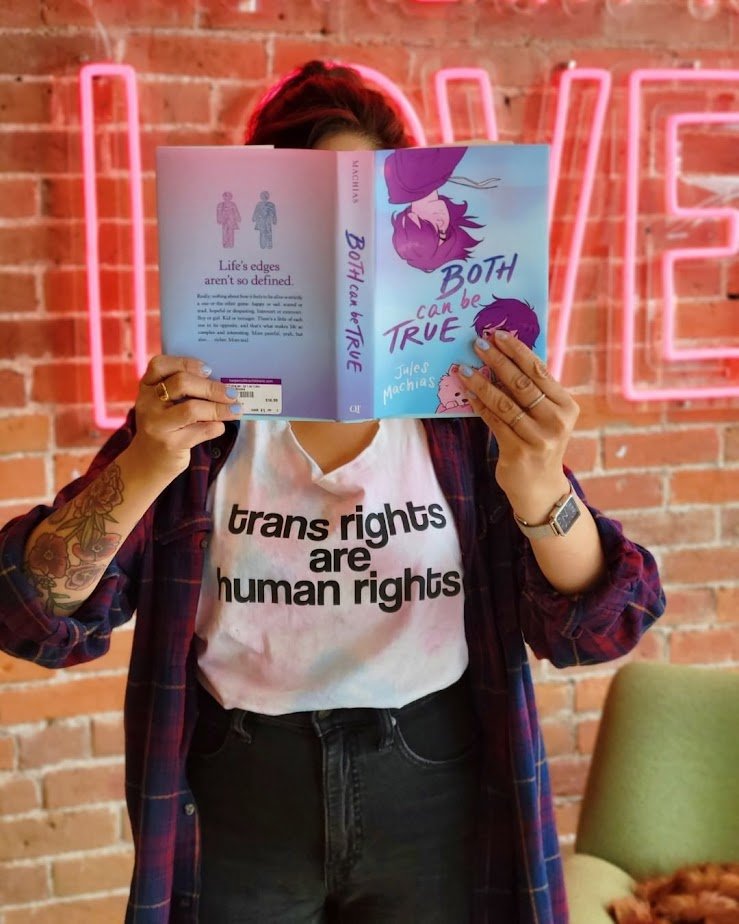About GBYT
Taking its inspiration from the late Congressman John Lewis, Good Books Young Troublemakers launched in April 2021 at Dog-Eared Books in central Iowa to engage middle grade readers in great fiction that not only entertains and fosters empathy, but which also encourages participants to build (and flex!) their allyship muscles.
The book club was founded by Tanvi Rastogi (she/her), a former Youth & YA Librarian who started GBYT after realizing that she--and the kids she worked with--lacked the confidence and skills to interrupt bigoted bullying because we had never explicitly been taught how to actively stand up for others.
Tanvi earned her BA in Sociology and Master of Library & Information Science from Rutgers University and has worked with children and teenagers for nearly two decades. She combines this background with a lifetime of experience as a brown first generation American to develop the GBYT resources that prepare youth to use their voices.
GBYT’s back story
As a former Youth and Teen Librarian working in public libraries, I experienced a watershed moment many years ago as I was presenting booktalks to a classroom of middle schoolers. Stories about crushes? They giggled. Spooky stories? Their eyes widened. But when I pulled out a book featuring a gay main character, the class erupted into a loud “ewww!”, and I froze. Taking my cue from the classroom teacher, I ignored the students’ response and my own heartbreak and moved on with my presentation – basically, I did everything wrong. A librarian’s job isn’t just to provide resources to young people. Public libraries are one of the few true community spaces available to many people, and it is our job to ensure that this space is one in which young people are heard, valued, and validated. In that moment, despite my personal philosophy about the power and necessity of inclusion, I had failed through my silence to stand up for queer kids. I could not truthfully say that I – and by extension, the institution I represented – was indeed safe for them.
I relived that moment daily, altering the memory to reflect the words I’d wished I’d said. This exercise felt futile and self-serving – until I realized I was giving myself words I could use the next time I found myself confronting similar homophobia. The time reflecting on this incident turned out to be well spent: when my queer books were met the next school year with similarly homophobic exclamations, I was prepared to intervene.
But what if I had developed that skill at a younger age? What if someone else in the room – the classroom teacher or students in that first class who each stood by silently – had developed those skills? If one of us had these skills, someone could have stood up for queer kids an entire year earlier.
Children are bombarded from the time they are born by harmful stereotypes about race, ethnicity and nationality, class, gender and sexuality, ability, religion, body size, immigration status, and more. Stories expose children to the wide diversity of perspectives, ideas, and experiences that exist in our world, increasing the likelihood that they will recognize and reject stereotypes of others and themselves as they grow into adulthood.


